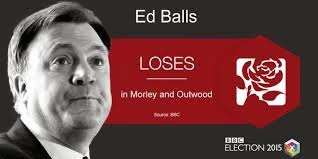Back in 2003, Gun was working at Britain’s communications spying centre, GCHQ, when she was included in the distribution of an email from the States, asking for blackmail material against a number of UN Security Council delegates, to push them into backing a resolution authorising war on Iraq.
 |
| Keira Knightley as Katharine Gun about to take a life-altering step Sadly, it didn’t stop the war |
“You work for the British government,” she’s told.
“No, not really,” she replies.
“No?”
“Governments change,” she explains. “I work for the British people. I gather intelligence so that the government can protect the British people. I do not gather intelligence so that the government can lie to the British people.”
The film was an excellent way of spending a lockdown hour or two. It also brought back memories. Not particularly cheerful memories, accompanied as they were by a sense of disappointment and even betrayal.
 |
| Huge demos against the invasion, in London and around the world Also couldn’t stop the war |
Dubya had clearly decided to go to war in Iraq however weak the justification, and Tony Blair had decided to go along with him, with or without authority.
They went in, toppled a deeply unsavoury dictator, but at huge cost: as well as six-figure casualties in the fighting, the war spurred the emergence of ISIS, leading in time to its blood-chilling dictatorship and many more years of war to break it.
No Iraqi weapons of mass destruction were ever found. And, when the legal advice offered to the government was finally published, it confirmed all our suspicions: the Attorney General had warned that invasion would be illegal and potentially lay Ministers open to prosecution as war criminals, unless a covering resolution was obtained from the UN. He only changed that view when it became clear the resolution had failed.
Nothing people could say or do would change anything. Not the hundreds of thousands of demonstrators. Not Katharine Gun laying her job and liberty on the line. Not even the law would restrict its behaviour: it was going to war even if the action was illegal.
It was all deeply depressing.
That’s why I find it ironic now to be labelled a ‘Blairite’, as I have been by many on the far Left of the Labour Party. Far from an enthusiast for Blair, I felt betrayed by his behaviour over Iraq. And there were other issues on which I felt his government behaved reprehensibly. The Private Finance Initiative (PFI) has left public sector bodies, in particular hospitals, still struggling today. Blair even repudiated one of his best initiatives, the Freedom of Information Act, when he realised it could be used to force him to reveal information he would rather hide.
No, I was never a Blairite. And today, the committed supporters of Blair are few indeed. But the difference, in assessing Blair, between those of us who refuse the label ‘Blairite’ but don’t belong to the hard Left, is that we’re not prepared to write off his governments’ achievements as though they never happened.
Among others, they include the major assault on child poverty. The minimum wage. The Human Rights Act. Devolution of powers to the nations of the UK. Freedom of Information. The Good Friday Agreement. Huge investment in the health service.
The latter is particularly topical, given that the health service is today struggling so pitifully to cope with Coronavirus. Had the investment started by Blair continued, instead of being reversed in the name of austerity, how much better-placed would the NHS have been to cope with the present pandemic?
Lives have been lost due to austerity. Thousands of lives. That’s worth bearing in mind when we assess the Blair legacy.
Without being a Blairite, I’m in no doubt that the governments he led were infinitely to be preferred to the one we have now. And, in arguing for a return to a Labour government, that’s something we need to proclaim loudly. Things would have been better without the last ten years of Tory government.
What’s more, he achieved far more than those who followed him as leader, and who lost power to the Tories or failed to win it back. He achieved far more than Gordon Brown, Ed Miliband or Jeremy Corbyn. Whether their policies were good or bad, they were unable to enact any of them.
You can only do any good at all if you get into power. Which Blair powerfully demonstrated. And you don’t have to be a Blairite to understand that.
I reject that label. But I also refuse to belittle the good he did among the harm.
Oh, and by the way, if you’re looking for a good way to spend a lockdown evening, you could do a lot worse than watch Official Secrets.















